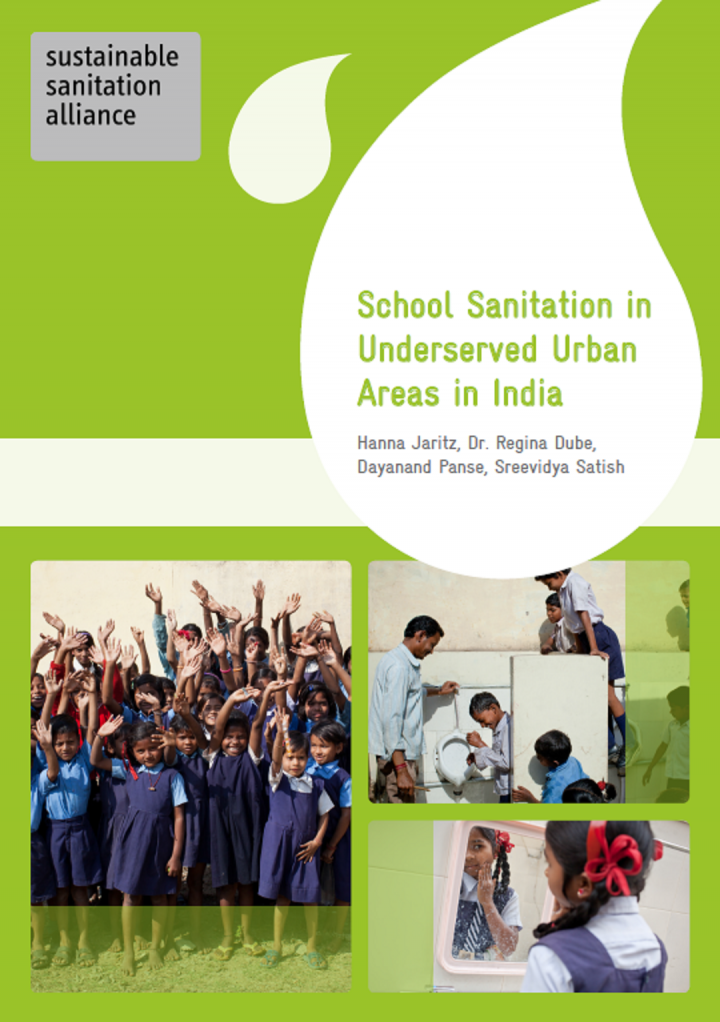
Published in: 2015
Pages: 15
Publisher:
Sustainable Sanitation Alliance (SuSanA)
Author:
Jaritz, H. et al.
Uploaded by:
SuSanA Admin
Partner profile:
common upload
7598 Views
119 Downloads
Location of library entry
This publication is the background article to one of the case stories in the SuSanA case story collection “Making WASH in Schools more Sustainable” (Vol II.). It has been selected as one of the focus case stories on monitoring under the umbrella of the SuSanA Working Group 7 on school sanitation.
The project "School Sanitation in Underserved Urban Areas in India" has shown that in the selected cities across India school sanitation is mainly not a matter of money or technology, but a matter of commitment and accountability.
Content - Summary
GIZ India is supporting the Ministry of Urban Development in various issues concerning sustainable urban development. A special emphasis is given to improve the sanitation situation for urban poor. In 2011 GIZ started the school sanitation activities together with the partners Ecosan Services Foundation (ESF), Pune and Society for Action in Community Health (SACH), Delhi. Objective of the intervention was, even with small funding, to enable selected schools in underserved urban areas to significantly improve upon their sanitation conditions, leading to ‘hygienically safe operated toilets’. 47 schools were selected in five Indian cities. For assessing the status quo and later the improvements, GIZ developed a benchmark indicator for measuring ‘hygienically safe operated toilets’. The main focus of the school sanitation project was concentrated on awareness raising and capacity building. An additional activity was refurbishment of the existing school sanitation facilities. All schools showed measurable improvements on school sanitation at the end of the project. It was recognized, that school sanitation is mainly not a matter of money or technology. It is a matter of commitment and accountability. It seems that only regular supervision, monitoring and evaluation of the sanitation status in each school coupled with incentives for good performance will improve the situation.
Bibliographic information
Jaritz, H. et al. (2015). School Sanitation in Underserved Urban Areas in India. Sustainable Sanitation Alliance (SuSanA)
Filter tags
East Asia & Pacific English Peri-urban Publications by SuSanA Publications by SuSanA Schools Sustainable WASH in institutions and gender equality (WG7) Urban (entire city)














